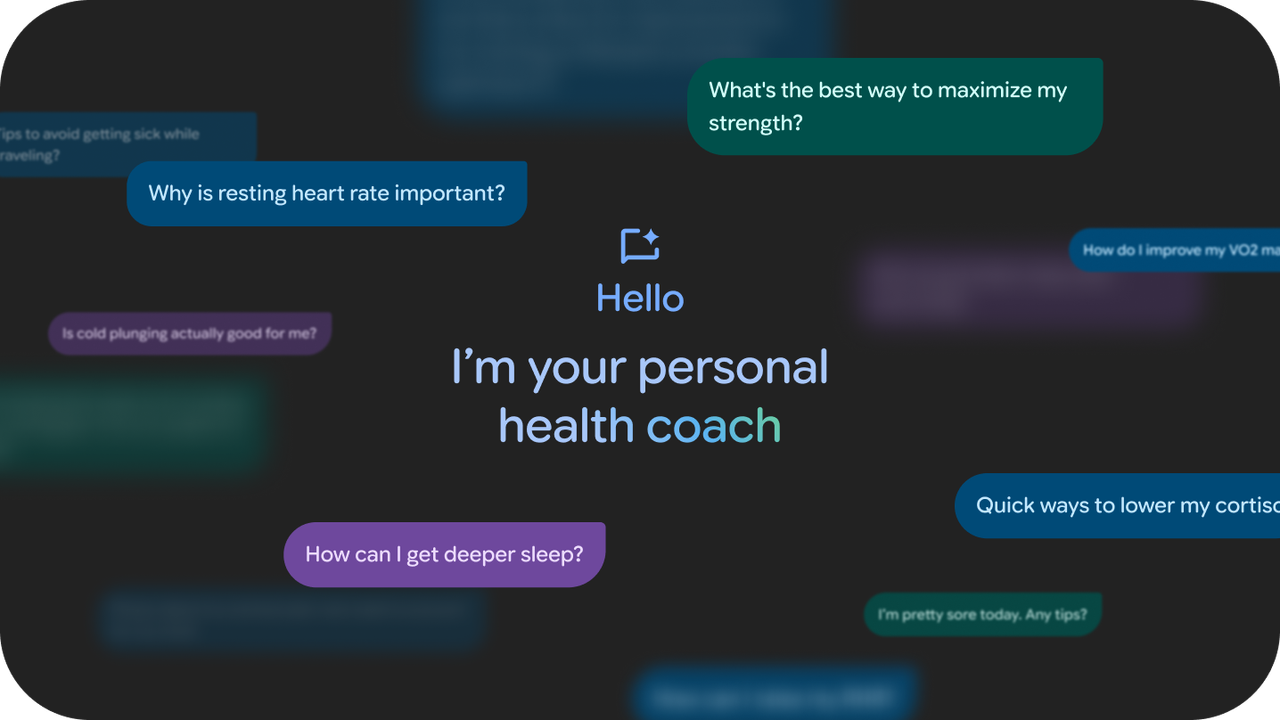
What you need to know
- The Fitbit Personal Health Coach preview launches Tuesday, October 28, starting with "adult Fitbit Premium users on Android in the U.S."
- You'll message the AI Coach in the Fitbit app with your goals, and it'll build a multi-week plan that you can customize using AI commands.
- You can also ask the Fitbit Coach questions about your health and sleep, related to your data trends and how you compare to others.
- The Health Coach rolls out fully starting in 2026 for Pixel Watch and Fitbit devices.
Fitbit is getting a major overhaul, its first since the 2023 Material You redesign, prioritizing a conversational AI that builds personalized training plans, as well as new Insight tabs that use graphs and LLM text to describe your health, sleep, and fitness trends. And Android Fitbit Premium users are getting first access to it.
Rolling out in Public Preview tomorrow, the Fitbit Personal Health Coach will show the same health and fitness data as before — like Cardio Load, Steps, Daily Readiness, Sleep Score, and more — but in easily digestible widget form, emphasizing weekly or monthly trends.
Most notably, the Public Preview starts with a 5–10 minute conversation where you help the built-in AI coach "understand your motivations and goals." It can then build a personalized, week-to-week plan that goes well beyond the current daily AI running recommendations; it can prioritize a wide range of sports and build workouts from "over 1,000" possible exercises.
How the Fitbit Personal Health Coach plans work
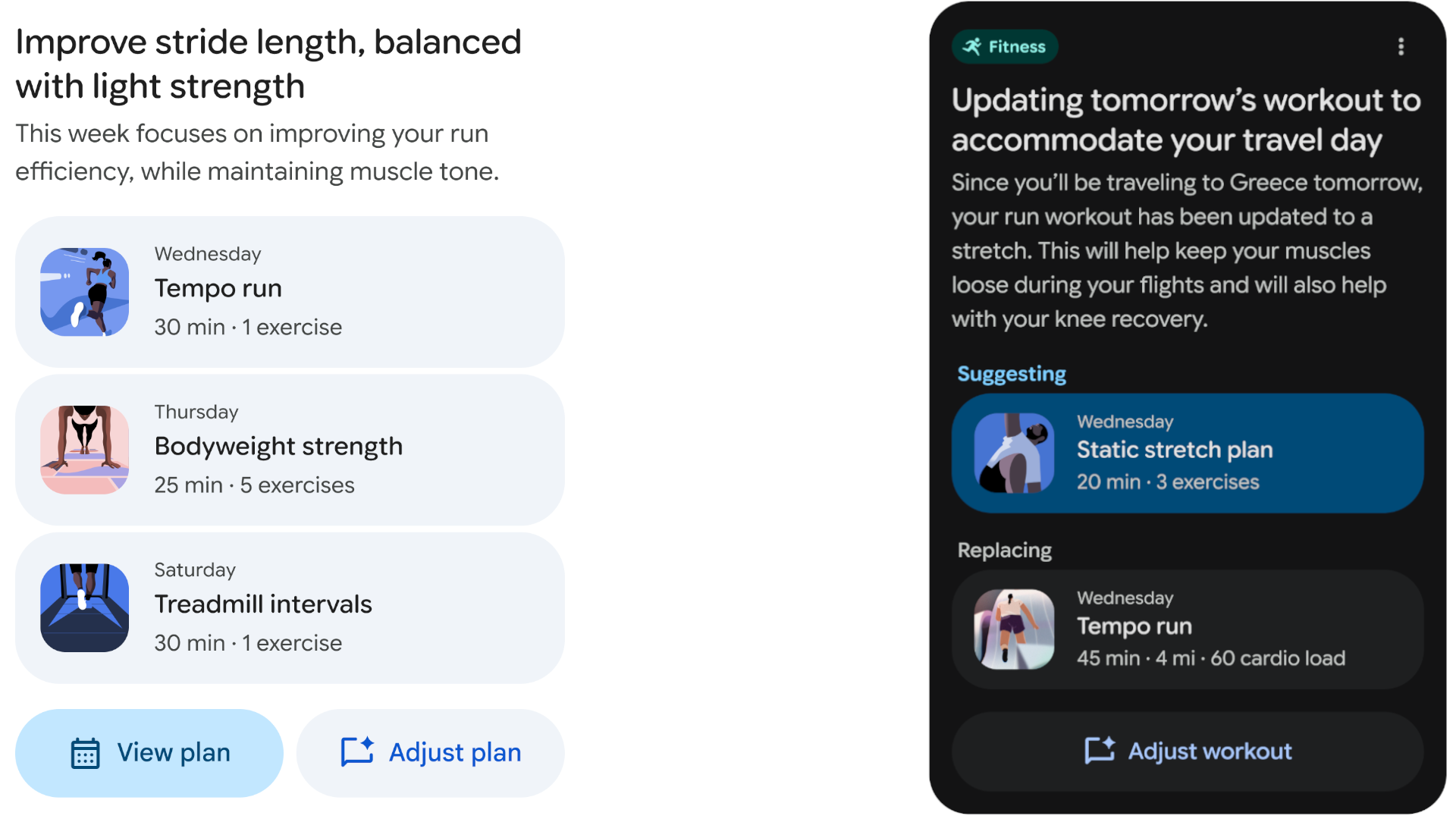
Fitbit's goal was to build an "agentic health coach" that can create a multi-week workout plan for any fitness goal, but then allow users to adjust their plan in response to unexpected injuries, travel, busy days at work, or any other context. It's "built on Gemini," but uses "different models" depending on the context, not just one version like 2.5 Pro or Flash.
The Fitbit Coach can build a marathon training plan targeting a specific date — like other fitness apps — with up to six weeks of workouts at a time, including cross-training workouts across a wide range of sports. Fitbit says it's "working on" adding a "further outlook" to support longer-term plans.
What's more interesting is that your Fitbit plan doesn't need to be so targeted or specific. It can be to "get ready for ski season" or "become a better trail runner." The AI will use this information to build workouts that target relevant muscle groups.
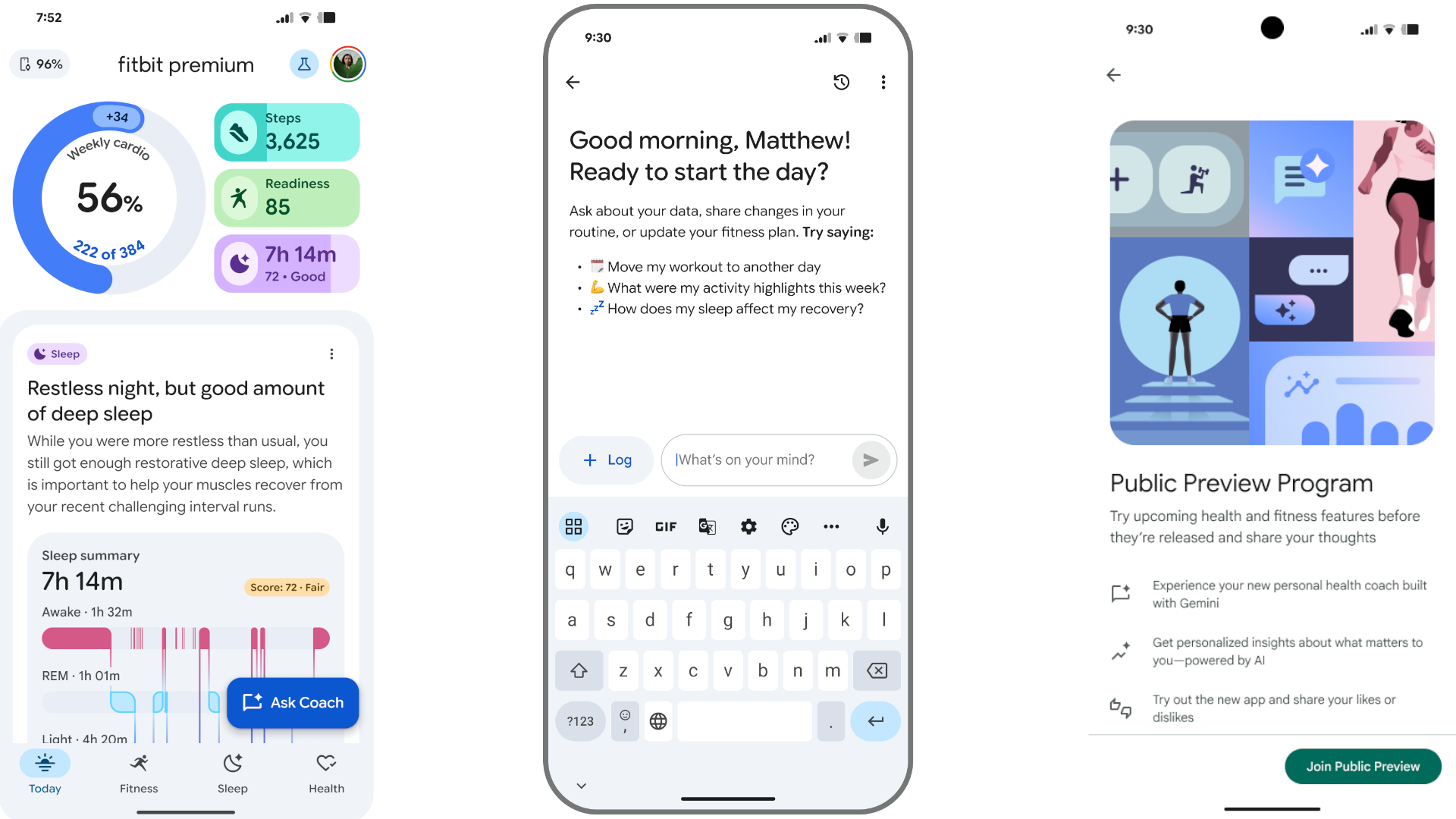
A Fitbit rep showed us his personal Gemini-built plan, with a recommended "Skip Prep Power Circuit" for that day. It included specific exercises like Leg Blasters and Jump Squats, and the user can change the number of reps, ask the AI to choose new exercises that target the same muscle groups, or see videos with the proper form. You log each exercise as complete in the app once you're done.
During the onboarding session, Fitbit will ask what exercise equipment you have access to, such as a Peloton or dumbbells. It'll use that context when assigning you specific exercises. But if you're traveling, you can "Adjust workout" and tell the AI Coach to "Create a 30-minute upper body workout I can do in my hotel room" and have a new activity in moments.
The same would apply if you were sick, had an injury, or couldn't make it to the gym that day. Fitbit's flexibility means you can't simply decide you don't have time or the capacity for your planned workout; it can always find something new that's still relevant to your goals.
Everything else Fitbit Personal Health Coach can or can't do
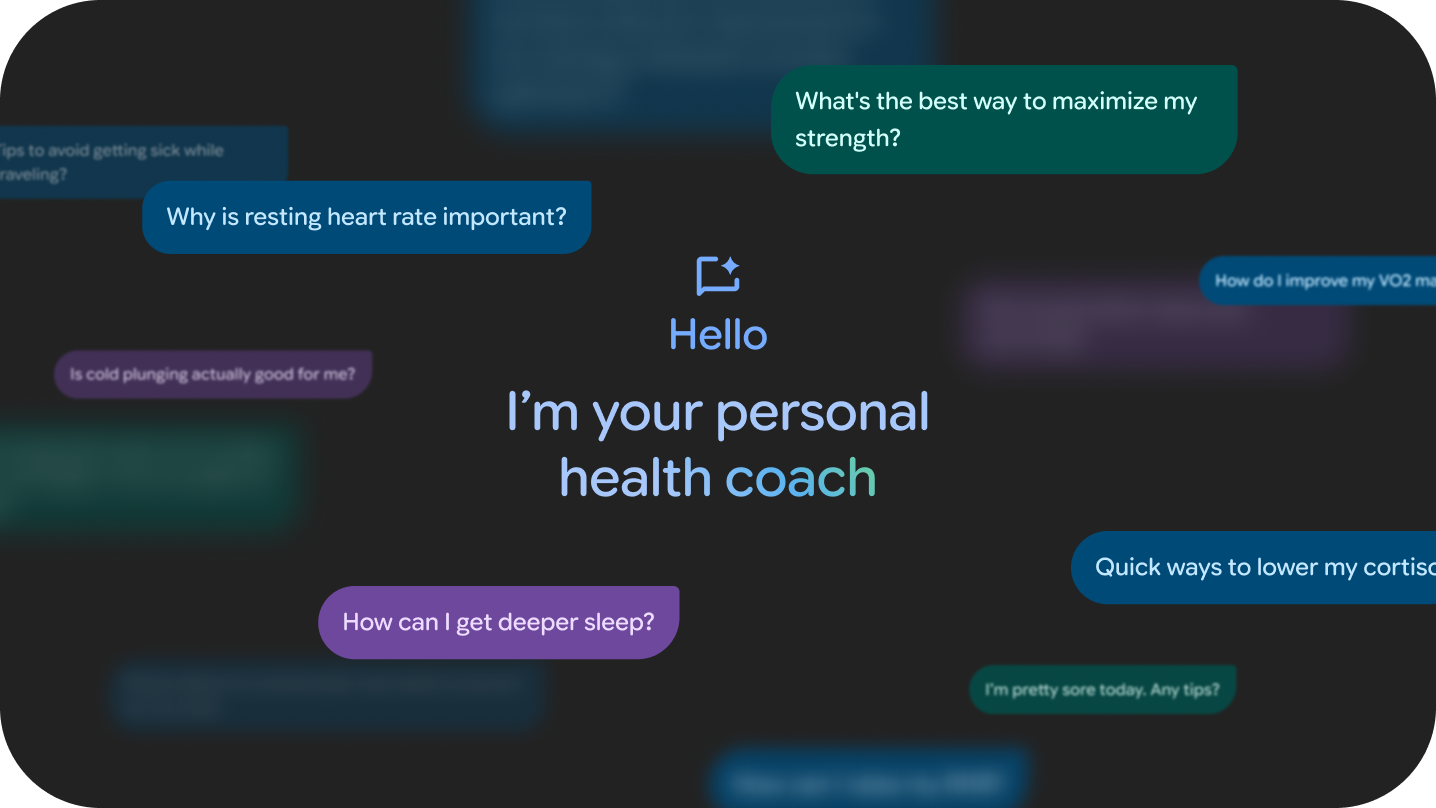
You can open your Gemini app right now, ask "Why am I so tired?" and get a general answer with several possibilities. But ask that question in the new Fitbit app, and it'll deliver a targeted answer, citing your circadian rhythm, consistency, time in specific stages, and how others in your demographic group typically feel.
That's what makes the new Fitbit Personal Health Coach more useful than other LLMs: The relevance to your personal circumstances. You can ask it to summarize what it knows about you and get a massive text dump of information, or ask about your trends for a specific data point like HRV.
Even if you don't know what to ask, the Fitbit app will have customized "insight" widgets that show useful information related to your health, sleep, and fitness trends, shown in the examples below. We'll have to see how well it works in practice, but in theory, Fitbit will ensure you understand why your health stats are improving or worsening.
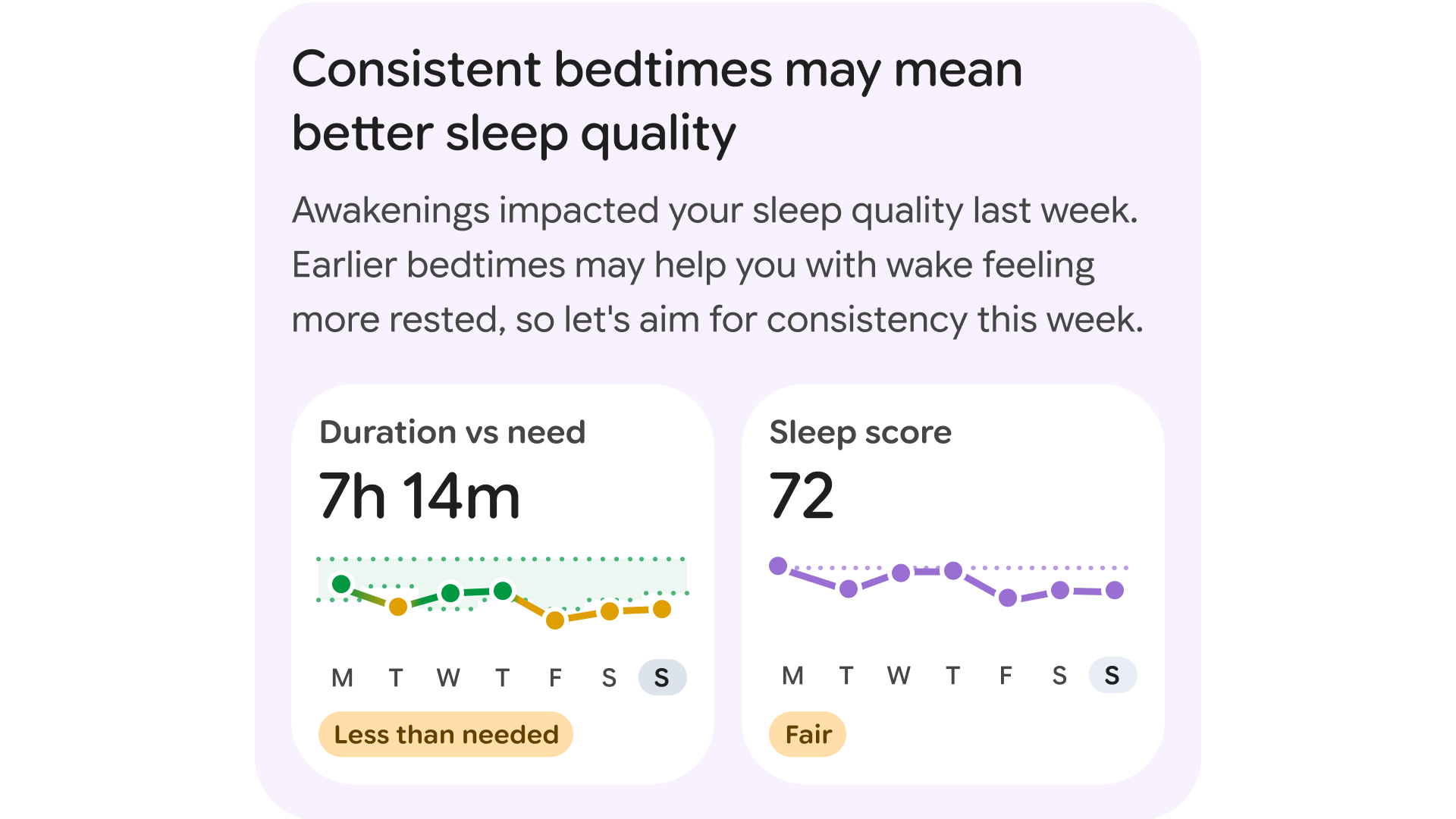
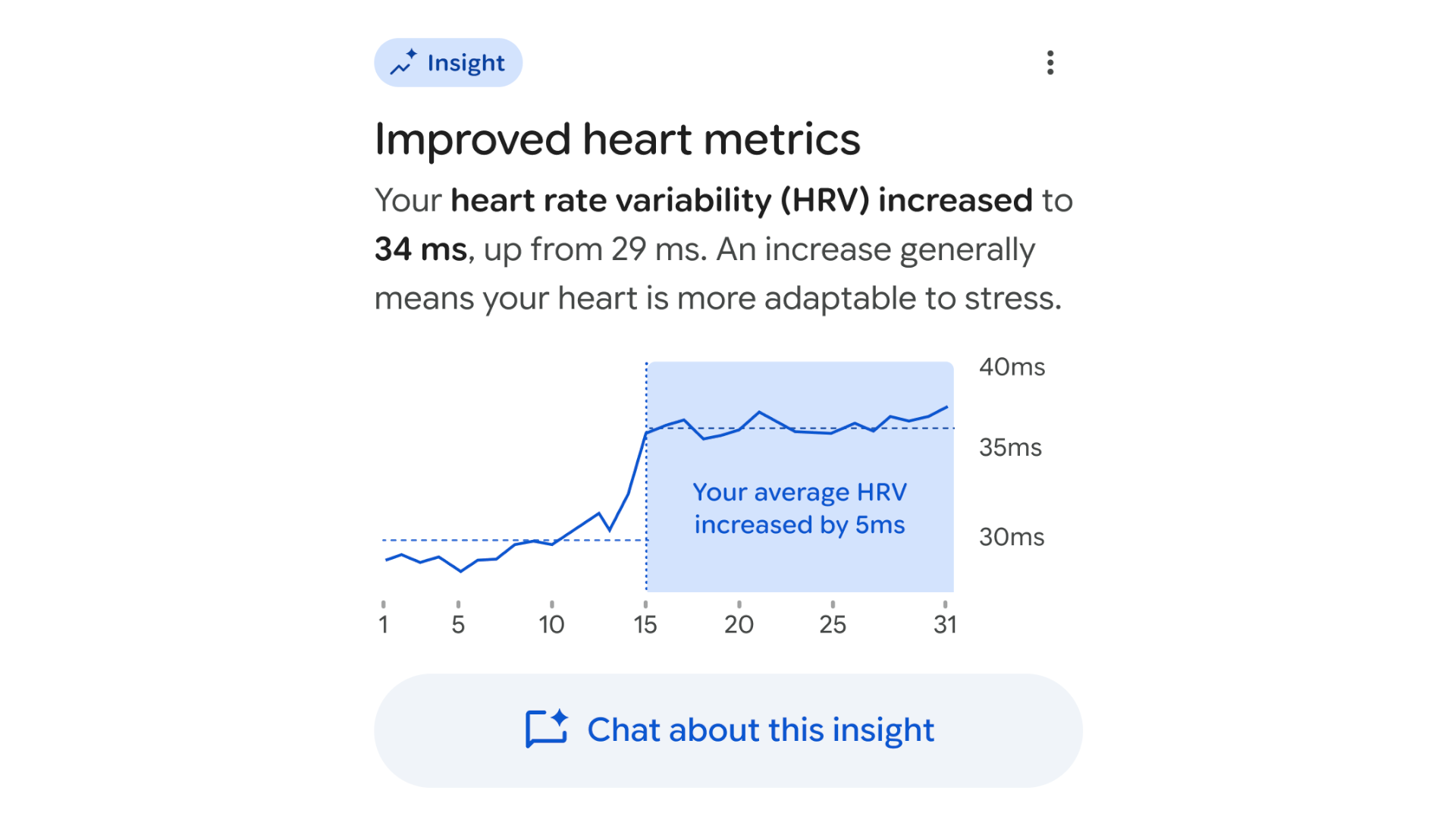
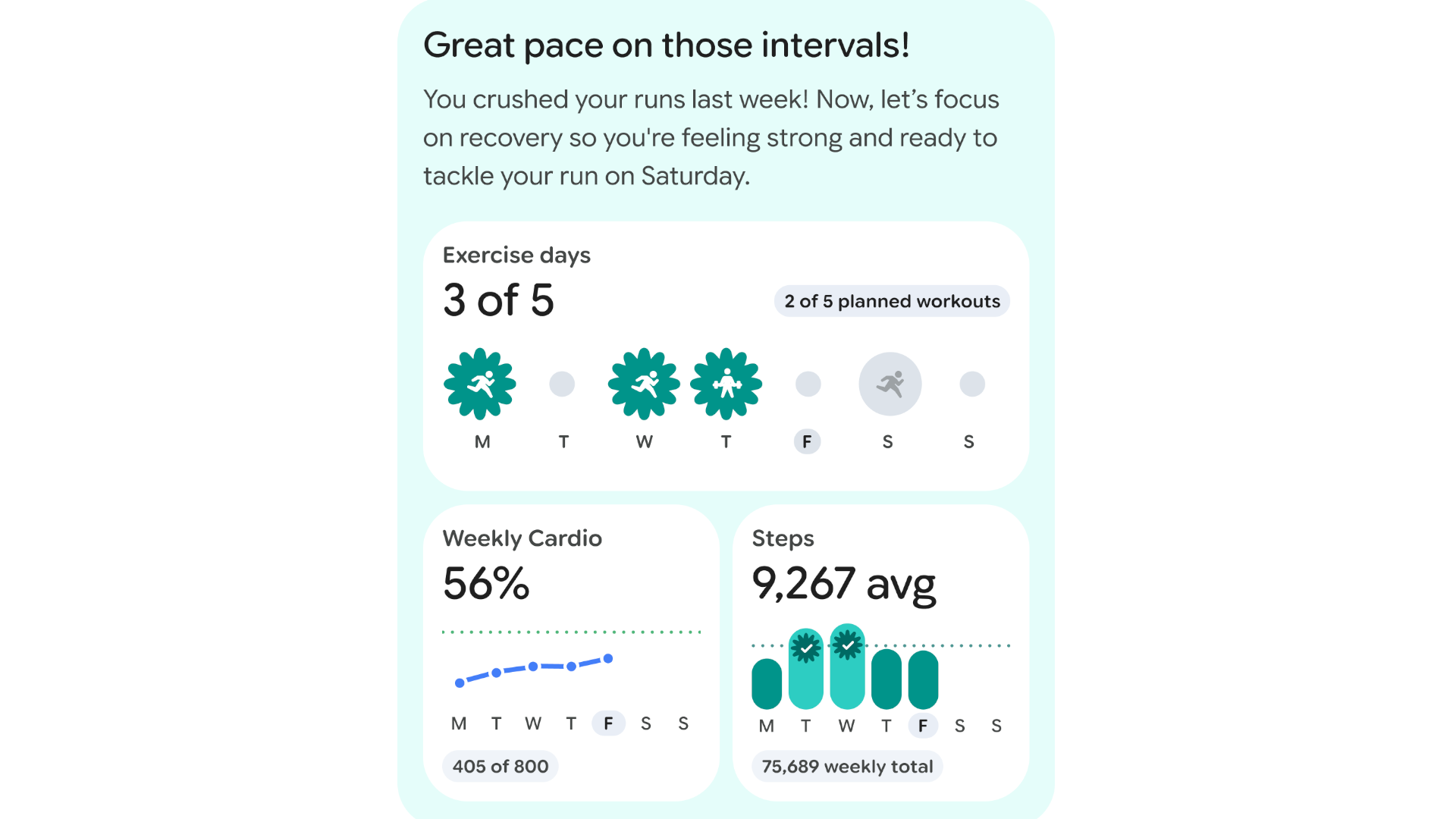
One area the new Fitbit app doesn't improve upon is nutrition. Food and water logging is part of the current app, but the Preview doesn't have a Nutrition tab or trends, yet. Fitbit says they'll be "bringing over additional features" over time and they're "looking closely at" nutrition as an important area, but it may not be ready anytime soon.
Fitbit also explained that the new version of the app will communicate with Health Connect to pull in data from third-party apps, but that specific data — like blood glucose from Dexcom — may take some time to arrive.
You'll be able to toggle back to the old version of the Fitbit app at any time, if the Preview lacks a specific feature you need.
The new Fitbit app will start off available to Fitbit Premium owners on Android phones, but will eventually come to free users and iOS devices. All of the best Fitbits of the last few years will work with the new app, though the Pixel Watch 4 has the most accurate Fitbit tracking.







